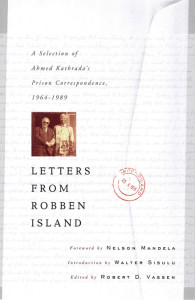Johan Cruyff, the Dutch football genius, has died of cancer at the age of 68.
When I was 7 or 8 years old, growing up in Rome, Italy, my older brother Danny took me along with some of his friends to watch “Il Profeta del Gol.” Sitting in the front row of a run-down movie theater with funky aromas, I was hypnotized by this mesmerizing documentary film about Cruyff. It was narrated by the legendary radio announcer Sandro Ciotti, whose raspy voice (along with the more suave one of Enrico Ameri) provided the soundtrack of our Sunday afternoons on “Tutto il calcio minuto per minuto”—the only live media coverage of Serie A available at the time. For years, I dreamed with eyes wide open of Cruyff’s “Impossible Goal” against Atletico Madrid.
Watching Cruyff took my typically Italian compulsive love for football to a precociously mature level. By the time Michel Platini (my hero) and Diego Maradona joined Juventus in ‘82 and Napoli in ‘84, respectively, I was ready for their magic. But when I had to move to the United States later in the 1980s, it was in deference to the Dutchman that I wore his number 14 on my high school, club, and college teams.
Cruyff seemed both extraordinary and ordinary. His visionary use of space, technical excellence, and quickness were inseparable from his scrawny physique, tempestuous nature, cigarette smoking, and dislike of fitness training.
Cruyff’s interpretation of football as a competitive art taught me to see alternative ways to play, move, think, and even “be.” Ajax’s “Total Football,” which Cruyff exported to Barcelona, first as a player then as a coach, was so radically different from the way Serie A teams played in the 1970s and early 1980s. “Everyone attacked and everyone defended,” Eduardo Galeano remembered, “deploying and retreating in a vertiginous fan.”
His stunning decision to boycott the Generals’ World Cup in Argentina in 1978, the first I followed religiously on television, endeared the Dutchman to me even more. An anti-fascist superstar who practiced what he preached! (The actual reason, I would later learn, had nothing to do with politics: he feared being kidnapped.)
Frits Barend, the Dutch TV commentator and personality, whom I met in South Africa in 1998, referred to Cruyff as an “obstinate maestro.” David Winner, author of Brilliant Orange, arguably the best book written in English about Dutch football and society, described him as “essentially Dutch.”
A poem by Toon Hermans, Winner writes, “captures the feeling that there was something sublime about Cruyff”:
En Vincent zag het koren
En Einstein het getal
En Zeppelin de Zeppelin
En Johan zag de bal
(And Vincent saw the corn
And Einstein the number
And Zeppelin the Zeppelin
And Johan saw the ball)

